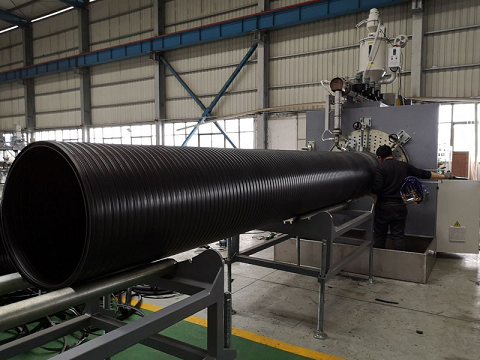Lightweight & Durable HDPE Pipe: Revolutionizing Municipal & Industrial Infrastructure
Published on: 2024-07-30 Views: 692
In the realm of infrastructure development, the choice of piping materials is paramount to ensuring efficiency, longevity, and cost-effectiveness. Traditional piping materials, such as concrete, steel, and PVC, have long been staples in the industry, but they come with their share of limitations. Introducing the next generation of piping solutions: Lightweight & Durable HDPE (High-Density Polyethylene) Pipe – the ideal choice for modern municipal and industrial applications.
Beyond Traditional Boundaries
Compared to conventional piping materials, HDPE pipes stand out for their exceptional blend of properties that make them a game-changer. Let's delve into how HDPE pipes surpass the competition:
- Lightweight & Easy to Install: Unlike heavy concrete or steel pipes, HDPE pipes are significantly lighter, reducing transportation costs and simplifying installation processes. This not only saves time but also minimizes the need for heavy machinery, lowering overall project expenses.
- Durability & Longevity: Despite its lightweight nature, HDPE pipe is incredibly resilient. It can withstand harsh environmental conditions, including extreme temperatures, corrosive soils, and ground movements without compromising its structural integrity. This translates into a longer lifespan, reducing the need for frequent replacements and minimizing maintenance costs.
- Corrosion Resistance: Unlike metal pipes, HDPE pipes are inherently corrosion-resistant. This eliminates the risk of leaks caused by rust or chemical erosion, ensuring a continuous and reliable flow of water or other fluids.
- Flexibility & Adaptability: HDPE pipes offer unparalleled flexibility, allowing them to bend and conform to the terrain with ease. This eliminates the need for numerous fittings and joints, reducing potential leak points and making them ideal for challenging installations like curved roads, river crossings, or underground tunnels.
- Environmental Friendliness: HDPE is a fully recyclable material, reducing waste and promoting sustainability. Additionally, its smooth interior surface reduces friction loss, enhancing flow efficiency and minimizing energy consumption.
The versatility of HDPE pipes has propelled their adoption across a diverse array of applications:
- Municipal Water Supply & Sewerage: HDPE pipes are the perfect choice for potable water distribution systems and sewage networks, ensuring safe and efficient water management.
- Irrigation & Agriculture: Their durability and resistance to root intrusion make HDPE pipes ideal for irrigation systems, supporting sustainable farming practices.
- Industrial Process Piping: From chemical processing to oil and gas transportation, HDPE pipes withstand harsh chemicals and pressures, ensuring smooth operation in demanding environments.
- Mining & Tunneling: Their flexibility and corrosion resistance make HDPE pipes a top choice for mining operations and tunnel ventilation systems.
Lightweight & Durable HDPE Pipe represents a paradigm shift in piping technology, offering a superior alternative to traditional materials. Its combination of lightweight design, durability, corrosion resistance, and environmental friendliness makes it the ideal choice for modern municipal and industrial infrastructure projects. As the world moves towards more sustainable and efficient solutions, HDPE pipes are poised to revolutionize the piping industry, setting new standards for performance and reliability.
